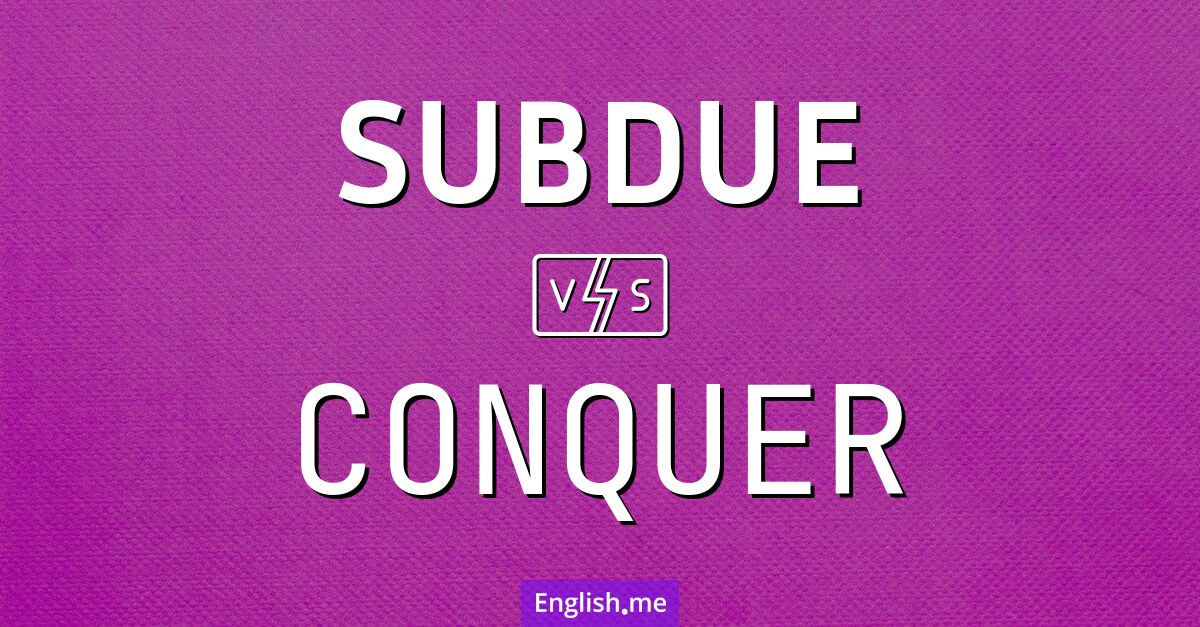"Subdue" vs. "conquer": two sides of control
Reviewed and edited by  Lloyd Cooper 30/10/2024, 21:22
Lloyd Cooper 30/10/2024, 21:22
English.me team member

 What is similar?
What is similar?
Both "subdue" and "conquer" involve overcoming resistance, gaining control or exerting power over something or someone. They are often used in contexts where force, persuasion, or effort is applied to overcome an obstacle.
 What is different?
What is different?
"Subdue" often implies calming, pacifying, or bringing something under control, often in a less aggressive or forceful manner. It can imply making something less intense or noticeable. "Conquer" generally implies a more decisive and often forceful victory over something, often with a sense of total control or defeat of an adversary. "Conquer" is often used in the context of warfare or complete overcoming.
 Which one is more common?
Which one is more common?

 Examples of usage
Examples of usage
Subdue- The firefighters worked hard to subdue the flames.
- She managed to subdue her anger before speaking.
- The army attempted to subdue the rebellion with minimal violence.
- The Romans set out to conquer vast territories.
- He conquered his fear of heights by taking small steps.
- The company aims to conquer the European market with its new product.

 English
English español
español française
française italiano
italiano deutsche
deutsche 日本語
日本語 polski
polski česky
česky svenska
svenska Türkçe
Türkçe Nederlands
Nederlands